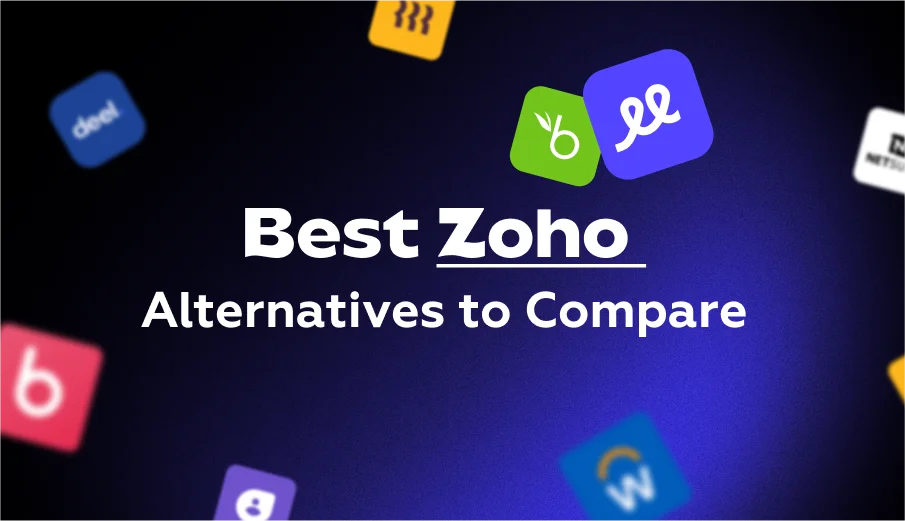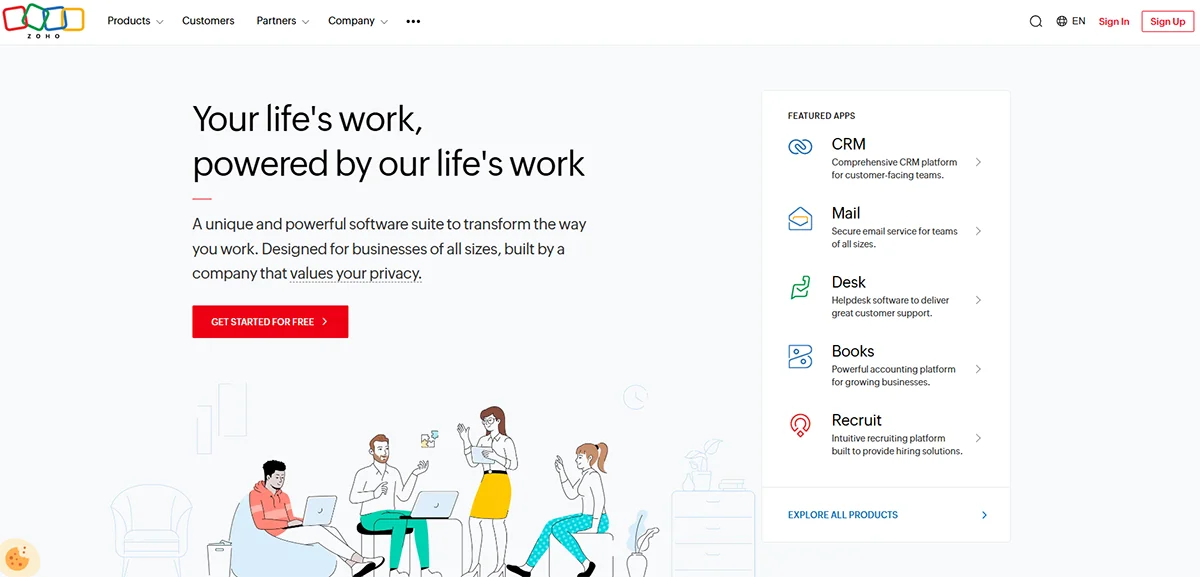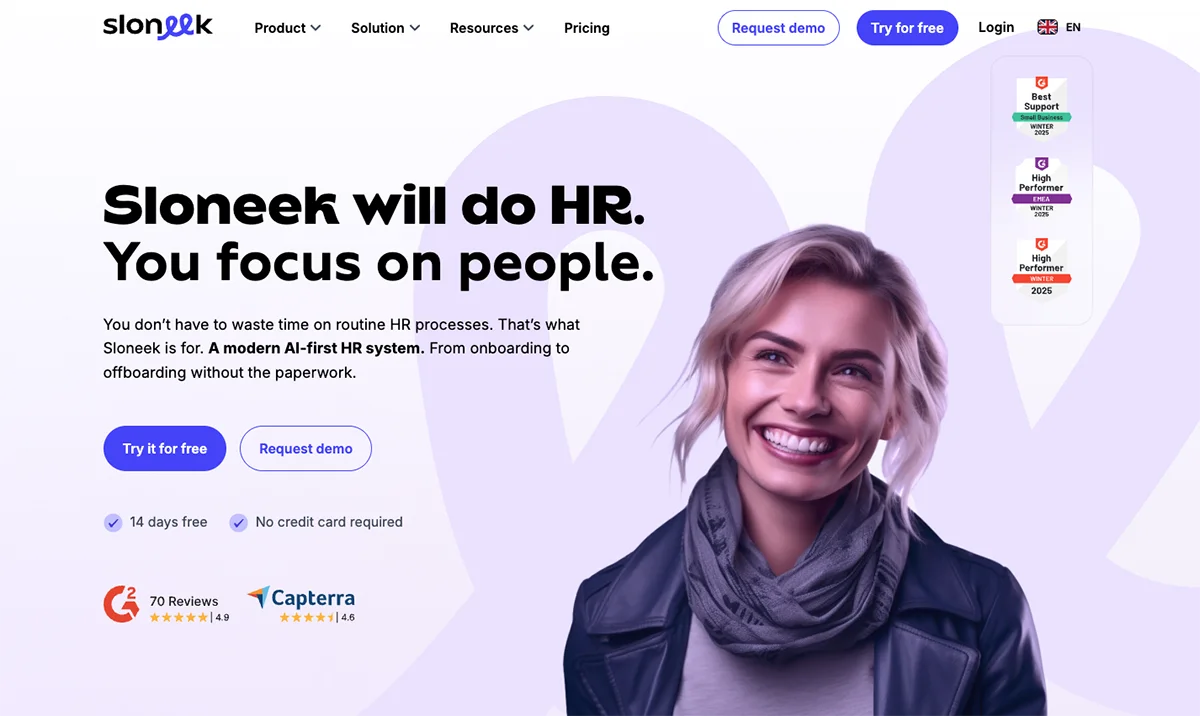Top Zoho Competitors & Alternatives: Best Options Compared

As businesses seek a suite of tools beyond Zoho, two categories stand out: Zoho CRM and project management platforms. Many Zoho CRM alternatives offer a wide range of functionalities crucial for SMBs, with intuitive interfaces and enhanced collaboration tools. Popular project management competitors like ClickUp deliver cloud-based, user-friendly solutions ideal for startups and growing teams.
Zoho’s appeal lies in its comprehensive suite of tools, intuitive interface, and competitive current pricing per user month. However, companies often look for replacement software that better fits their workflows, offers improved inventory tracking, or meets the needs of a sensitive business.
With growing options in the market, exploring Zoho alternatives allows organizations to find platforms tailored to their specific needs — whether CRM, project management, or collaboration. The right tool can improve efficiency, optimize competitor tracking, and support sustainable growth.
Overview of Zoho and Its Market Position
Zoho provides a suite of tools with over 45 cloud-based apps, including CRM and project management software. Known for its intuitive interface and affordability, it suits small and medium-sized businesses. Still, many seek alternatives offering advanced customization and stronger integrations with business tools.
While Zoho covers core needs, competitors like Salesforce or Monday.com often provide more scalable solutions. Zoho Recruit remains a popular HR tool, yet faces tough competition from platforms with deeper features and enterprise-grade capabilities.
Key Features and Strengths of Zoho
Integrated Applications
Zoho offers over 45 connected cloud applications, including CRM, accounting, project management solutions, campaigns, and HR software like Zoho HR and Zoho Recruit, with all tools accessible via a unified dashboard. These apps are designed as browser apps and support integrations with business tools such as Google Drive and enterprise resource planning systems, providing a complete suite for managing various elements of project management and business operations.
Scalability for SMBs
Zoho supports growth for businesses from 1 to over 1,000 employees, letting small businesses transition to mid-sized companies without switching platforms. The platform’s wide range of features and pricing plans allows organizations to scale effectively without compromising on usability or control over key business processes.
Customization Options
Zoho offers robust customer-level customization options that cater to a variety of business needs. With advanced workflows and advanced customization capabilities, teams can build custom workflows that streamline repetitive tasks and improve communication history tracking. This makes Zoho a feature-rich platform and an intuitive solution for teams with unique operational requirements.
Affordability
Zoho consistently ranks among the most cost-effective solutions, frequently highlighted by platforms such as Capterra and G2 for its affordability. With multiple free tiers, a 14-day free trial, and competitive per-user pricing (as low as a few dollars per user per month), Zoho reduces barriers for startups choosing between Zoho and other Zoho alternatives. When comparing Zoho pricing with other low-cost CRM options, Zoho offers a comprehensive suite of tools at a price point that often outshines its competitors. Affordable CRM options typically provide limited features at their base levels, but Zoho’s pricing structure allows access to core features and enhanced usability without inflating costs. It also includes custom pricing for businesses with specific needs, making Zoho a perfect alternative for companies seeking flexibility.
Comprehensive Integration
Zoho synchronizes with third-party services such as Google Workspace, Microsoft 365, Slack, QuickBooks, and Google Drive, maintaining streamlined operations in mixed-vendor environments. These integrations help teams manage project documents, document sharing, and status updates in real time while enhancing team collaboration and visibility across the sales funnel and customer inquiry process.
Global Accessibility
Zoho’s multi-language, GDPR-compliant platform supports teams and users in 180+ countries. This facilitates document sharing, real-time dashboard updates, and access to a shared knowledge base for distributed teams. The multi-language CRM software enhances communication and operational efficiency, making it an ideal remote team software solution for global businesses.
Continuous Innovation
Zoho releases frequent updates, adding AI tools, analytics, and automation to stay ahead of Zoho competitors. Features such as smart project schedules, dashboard updates, and predictive analytics provide valuable business insights and increase operational agility across departments. These innovations also enhance browser app performance and boost overall platform reliability.
Zoho AI and Workflow Automation Tools
Zoho’s investment in AI and automation has transformed its product lineup. Zoho AI tools like Zia help automate tasks, analyze CRM data, and improve lead scoring. In addition, its workflow automation tools empower teams to design complex, rule-based processes for process automation. These capabilities make Zoho a standout among CRM with automation features, especially for companies seeking user-friendly CRM platforms and integrated productivity tools with comprehensive depth.
Top Zoho Competitors and Alternatives
Leading Zoho competitors and alternatives include platforms with strong enterprise features, broad integration support, advanced customization, and comprehensive depth. These tools address key business needs like CRM, productivity, compliance, HR management, and enterprise resource planning, providing a complete suite for modern organizations.
1. Sloneek
First on our list is Sloneek, a modern, feature-rich platform designed to reliably accompany you throughout your entire HR management journey with core features. It supports employee record updates, shift scheduling, workflows for time, job postings, and an intuitive, user-friendly interface that enhances employee self-service and customer experience. Sloneek offers advanced workflows and customizable dashboards for maximum efficiency in managing both employees and freelancers.
Sloneek enables process automation and integrates well with various business tools, delivering real-time status updates and dashboard updates that provide actionable insights for HR teams. With its 14-day free trial, Sloneek is a perfect alternative for companies looking to reduce administrative workload and optimize business processes without hidden or unreasonable costs.
2. Salesforce
Salesforce is a dominant player in the CRM space, offering a comprehensive sales execution platform with over 3,000 integrations with business tools. It supports advanced workflows, complex inventory workflows, and customizable workflows for organizations needing deeper customization and enterprise resource planning.
Salesforce excels in providing business insights and actionable insights through its analytics capabilities, helping businesses optimize their sales teams and customer satisfaction. Its scalability and multi-country compliance make it a preferred Zoho alternative for large companies with departments with communication blocks and high-security requirements. Pricing plans vary, with hourly rates for consulting services often factored into the total cost, so users should watch for potential hidden costs.
3. Microsoft 365 (Dynamics and Office Suite)
Microsoft 365 offers an intuitive solution combining productivity apps with enterprise CRM via Dynamics 365. The platform integrates seamlessly with Microsoft Teams, SharePoint, and Outlook, making it a favorite among enterprises requiring strict security and comprehensive depth in their business processes.
Dynamics 365 covers modules for sales, finance, operations, and HR, providing a complete suite including Zoho HR competitors like Dynamics Human Resources. It features configurable statuses, customizable dashboards, and supports collaborative platform environments for efficient communications. The pricing plans are detailed and often reflect the exact business needs with scalable options per user monthly.
4. Google Workspace
Google Workspace is a cloud-native suite featuring Gmail, Drive, Meet, and Docs, favored for its real-time collaboration, familiar interface, and ease of deployment. It integrates well with third-party SaaS tools and serves SMBs and distributed teams needing a flexible alternative to Zoho.
The platform supports document upload, status updates, and a shared knowledge base that boosts efficiency of communications and customer satisfaction. Pricing is competitive and transparent, with no unreasonable costs, making it a popular choice for startups and service-based businesses requiring a browser app environment with no steep learning curve.
5. Monday.com
Monday.com is a work OS that emphasizes project management, automation, and multiple app integrations. It stands out with robust project management tools, visual workflows, and customization options that make it a serious competitor to Zoho for teams with complex workflows and demanding project schedules.
This platform offers a Project 360 Dashboard providing an overview of projects, milestones, and status updates, making it easier to track and optimize resource allocation. Its integration with HR systems places it among noteworthy Zoho HR alternatives, delivering enhanced usability for departments needing collaborative platforms and communication history tracking.
6. HubSpot
HubSpot provides CRM, marketing automation, sales, and customer service tools with a feature-rich platform and a free CRM tier attractive to startups and small companies. It focuses on lead tracking, email automation, and reporting, with strong integration support across hundreds of third-party apps.
Its comprehensive sales execution platform capabilities help sales teams automate workflows, analyze pipeline health, and improve customer interaction management. HubSpot’s user rating and positive customer reviews highlight its strength as a powerful alternative to Zoho for inbound marketing and sales enablement, with a straightforward pricing plan and no hidden fees.
7. ClickUp
ClickUp is a highly customizable solution known for its comprehensive project management solutions and innovative sales automation features. It supports unlimited projects, smart project schedules, task hierarchies, time tracking, and Gantt charts — all elements of project management designed for larger teams and complex workflows.
ClickUp’s advanced customization options allow sales teams to automate repetitive tasks with process automation, manage communication history, and analyze sales funnel data to boost efficiency. Its intuitive user interface and integration with popular third-party apps make it a robust customer and team collaboration platform. The pricing plan is flexible and transparent, with detailed pricing available per user per month, making it accessible to startups and enterprises alike.
8. Insightly
Insightly is a modern, cloud-based CRM trusted by thousands of businesses to manage customer relationships and projects in one place. It blends contact management, sales pipelines, project tracking, workflow automation, and no-code integrations—giving teams a clear view of the entire customer journey in a simple and easy-to-use platform.
What makes Insightly stand out is its ability to combine CRM and project management in a single solution, with flexible automation, AI-powered features, and seamless integrations with existing business tools. It’s especially popular with small and mid-sized companies, agencies, and service providers looking for an affordable yet scalable way to streamline sales, marketing, and delivery. Pricing starts at $29 per user/month with a 14-day free trial, no credit card needed.
Zoho Alternatives Overview
| Platform | Key Features | Target Segment | Notable Zoho Alternative Role |
|---|---|---|---|
|
Salesforce |
Advanced CRM, compliance, advanced workflows, business insights |
Large enterprises, enterprise resource planning |
Deep CRM customization, robust customer relationship management, integration with sales tools |
|
Microsoft 365 |
Productivity suite, ERP, HR, document sharing, communication history |
Enterprises, SMBs |
Secure Office ecosystem, Zoho Mail replacement, status updates, integrations with business tools |
|
Google Workspace |
Collaboration tools, browser apps, team collaboration, Google Drive |
SMBs, global remote teams |
Cloud-based suite of tools, cost-effective document management, smart project schedules |
|
Monday.com |
Visual project management, custom workflows, reporting tools |
Project teams, HR departments |
Flexible workflows, intuitive solution, complete suite for task tracking and HR needs |
|
HubSpot |
Free CRM, marketing automation, sales funnel insights |
Startups, SMBs |
Inbound marketing focus, ideal for customer inquiry management and communication efficiency |
|
ClickUp |
Project management software, unlimited projects, dashboard updates |
Teams of all sizes |
Feature-rich platform, perfect alternative with deep customization options, robust project tracking |
|
Sloneek |
Attendance tracking, employee records, core HR workflows |
SMBs, HR teams in Central Europe |
Localized HR solution, enhanced usability, elements of project management, comprehensive depth |
Additional Considerations
- Pricing and User Experience
When choosing a Zoho alternative, pay attention to detailed pricing plans, including users per month costs, hourly rates for add-ons or consulting, and potential limitations or duplication of tasks that can increase administrative workload. Platforms that provide clear insights from review websites and transparent pricing plans tend to deliver better customer satisfaction and maximum efficiency.
Look for solutions offering customizable workflows, configurable statuses, and dashboard for clients to ensure seamless collaboration across departments and smooth communication flow. For service-based businesses and startups, scalable pricing and flexible alternatives without unreasonable costs are essential.
- Integration Capabilities
Integration capabilities measure how easily a solution connects with essential business tools. Leading Zoho competitors provide native integration with popular apps like Slack, QuickBooks, and Google Workspace. For example, Microsoft 365 enables unified workflows across email, documents, and collaboration platforms. Assess API support, pre-built connectors, and custom integration options to ensure operational continuity and data accuracy.
- User Experience and Support
User experience and support determine adoption rates and ongoing satisfaction. Zoho alternatives like Monday.com and HubSpot feature intuitive dashboards, guided onboarding, and multi-language help centers. Responsive customer service—including live chat, email, and phone—directly impacts issue resolution and user productivity. Compare self-service resources, knowledge bases, and response time ratings from trusted review sites before making a decision.
Zoho vs. Competitors: Direct Comparison
When comparing Zoho with its alternatives, differences in pricing, features, integrations, and adaptability become clear. Zoho’s extensive suite of over 45 cloud-based applications makes it a comprehensive solution for SMBs, but competitors like Salesforce, Microsoft 365, and Monday.com excel in areas where Zoho may have gaps.
Salesforce is renowned for its enterprise-scale CRM and advanced process automation, supported by robust compliance, task management, and communication tools such as Salesforce Chatter. Microsoft 365 offers seamless document collaboration and integration, excelling in task management and communication through Microsoft Teams and Planner.
Monday.com stands out for its simple process and workflow automation tailored for SMBs, providing intuitive task management and communication through its Work OS.
HubSpot attracts startups with its marketing auomation capabilities, combined with effective task management and communication tools like HubSpot Threads, although advanced sales features can be costly.
Google Workspace is favored for its collaboration and communication tools like Google Chat and Google Tasks, but lacks the dedicated business process tools offered by Zoho HR.
Zoho competitors either focus on deep vertical integration, like Salesforce and Microsoft, or flexible workflow automation, like Monday.com and HubSpot. While Zoho remains an affordable all-rounder, especially in HR, finance, and operations, understanding business priorities and comparing specialized features can guide the right choice in process automation and communication tools.
Conclusion
Choosing the right business software isn’t just about features or price—it’s about finding a solution that fits unique goals and workflows. As the market evolves, companies have more choices than ever, each offering distinct strengths and advantages.
Exploring Zoho competitors opens up opportunities to streamline operations, boost productivity, and support growth. By carefully comparing options and aligning them with business needs, organizations can invest in a platform that drives real value for their teams and customers.
FAQ
Who are the main competitors to Zoho?
Major Zoho competitors include Salesforce, Microsoft 365, Google Workspace, Monday.com, and HubSpot. These alternatives offer varying strengths in CRM, project management, collaboration, security compliance, and automation.
How does Zoho’s pricing compare to its competitors?
Zoho is known for cost-effectiveness, offering multiple free tiers and competitive paid plans. While alternatives like Salesforce and Microsoft 365 can be more expensive, they often provide advanced enterprise features and industry compliance.
What features does Zoho offer that stand out?
Zoho offers an all-in-one suite with applications for CRM, project management, accounting, HR, and more. It stands out for seamless integration, scalability, user customization, global accessibility, and continuous innovation including AI enhancements.
Why might a business consider switching from Zoho to another platform?
A business might seek a Zoho alternative for more advanced customization, stronger compliance with industry standards, specialized features, or better integration with existing tools already in use.
Which Zoho alternative is best for CRM needs?
Salesforce is widely regarded as the top Zoho alternative for CRM due to its advanced automation, customization, and vast app ecosystem. HubSpot also offers a free, user-friendly CRM suited for startups and small businesses.
How do Zoho alternatives compare in terms of integration?
Leading alternatives like Microsoft 365, Google Workspace, and Salesforce provide extensive native integrations with popular applications, ensuring smooth workflow and operational continuity for businesses.
Does Zoho support automation and AI features?
Yes, Zoho incorporates automation and AI across various applications, helping businesses streamline processes, increase productivity, and make data-driven decisions.
Why look fo a Zoho alternative?
Some users report limitations in Zoho’s user interface and repetitive tasks that hinder efficient process automation.






